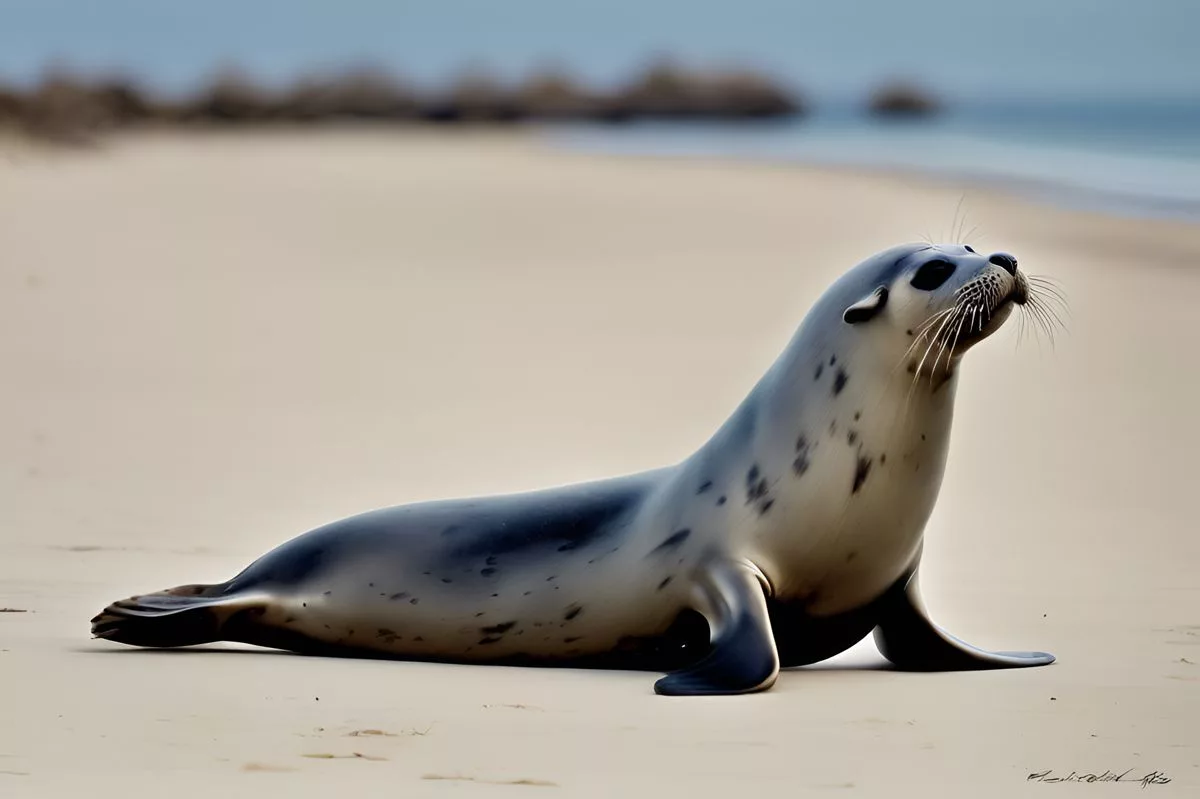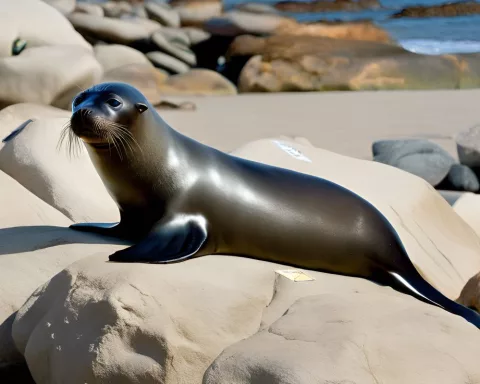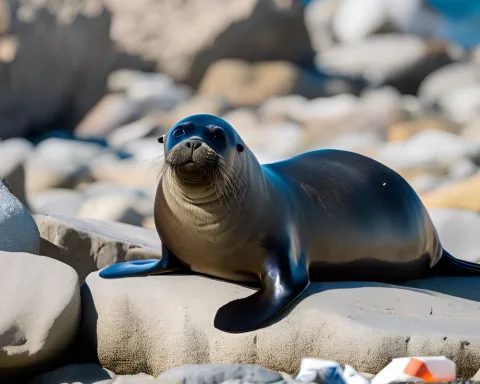Rabies has been detected in Cape Fur Seals along the South African coastline since October 2023, with the first verified case confirmed on 7 June 2024. The Western Cape Department of Agriculture Veterinary Services and the State Vet are managing the situation and public health guidelines have been set. The public is asked to comply with guidelines to maintain public safety and animal welfare, including not touching, handling, or consuming seal carcasses or any part thereof. Future mitigation strategies are being developed to preserve the equilibrium of South Africa’s fragile coastal ecosystems.
What is the current situation regarding the rabies outbreak among Cape Fur Seals in South Africa?
Rabies contagion has been detected in Cape Fur Seals along the South African coastline since October 2023. The Western Cape Department of Agriculture Veterinary Services and the State Vet confirmed the first verified case on 7 June 2024. The implications of this outbreak extend to all areas that are home to Cape Fur Seals, and public health guidelines have been set by the Western Cape Department of Health and Wellness in collaboration with the National Institute of Communicable Diseases (NICD).
An Imminent Crisis on the Horizon
South Africa’s coastline, with its crashing waves and salty breeze, is a haven for a diverse ecosystem. Among the myriad of fauna, the Cape Fur Seals have been natives of these shores for countless generations. However, an unforeseen plague surfaced in the past year – rabies contagion among these coastal dwellers.
The Western Cape Department of Agriculture Veterinary Services and the State Vet confirmed the first verified case on 7 June 2024. Since this initial incident, the number of affected seals has risen to five; the earliest case can be traced back to October 2023. The process of identifying these cases has been thorough and meticulous, with only the instances confirmed by the State Vet or the Western Cape Department of Agriculture Veterinary Services considered credible.
Despite the unusual emergence of rabies in the seal population, it’s essential to note that this deadly disease is not a stranger to South Africa’s wildlife. Regular sightings of seals, as well as seal carcasses, are a common sight along the coast, and shouldn’t be directly associated with the recent outbreak.
Ramifications and Public Health Guidelines
Although the detection of the disease has been centralized to Cape Town, the possible implications extend to all areas that are home to Cape Fur Seals. This wide-ranging impact necessitates public health guidelines set by the Western Cape Department of Health and Wellness, in collaboration with the National Institute of Communicable Diseases (NICD), to be applicable to these areas.
According to the current health advisory, it is not obligatory for the general public to receive a rabies vaccination. However, any individual subjected to a seal bite must urgently seek medical help and undergo Post Exposure Prophylaxis.
Role of the Public and Managing Bodies
The arrival of this unforeseen malady has heightened the sense of responsibility among those managing these coastal territories. Trained personnel from authorized institutions, uniformly dressed and suitably equipped, are tasked with responding to seals that exhibit symptoms of rabies. Their dual priority lies in ensuring public safety and preserving animal welfare.
The public too has an imperative role in this situation. Compliance with the issued guidelines is paramount. These directives include maintaining a respectful distance from seals, whether they are in the water or on land, and abstaining from any interaction. This cautionary practice extends to seals found in harbours, particularly those fed in Hout Bay harbour.
Moreover, the public is requested to leash their dogs in areas populated by seals. It is further emphasized not to touch, handle or consume a seal carcass or any part thereof. Any seal-related incidents or attacks should be promptly reported to the City at their designated contact number 021 480 7700.
Future Mitigation Strategies
As we embark upon this unfamiliar journey, the intergovernmental committee is preparing a series of action plans. These measures include monitoring infection rates among seals, conducting sample tests, and evaluating the extent of rabies contagion within the Cape Fur Seal community.
Together, we confront the task of mitigating this outbreak in an endeavour to preserve the equilibrium of our rich, yet fragile coastal ecosystems. The sight of Cape Fur Seals basking under the sun is a symbol of our coastline’s beauty, a treasure we are determined to protect. For ours, their, and future generations’ sake.
What is rabies and how is it affecting Cape Fur Seals in South Africa?
Rabies is a deadly disease affecting the nervous system that can infect both animals and humans. Since October 2023, rabies has been detected in Cape Fur Seals along the South African coastline, with the first verified case confirmed on 7 June 2024. The Western Cape Department of Agriculture Veterinary Services and the State Vet are managing the situation, and public health guidelines have been set to maintain public safety and animal welfare.
What are the public health guidelines for dealing with the rabies outbreak among Cape Fur Seals?
The Western Cape Department of Health and Wellness, in collaboration with the National Institute of Communicable Diseases (NICD), have set guidelines to prevent the spread of rabies. It is recommended that the public maintain a respectful distance from seals, not touch, handle, or consume seal carcasses or any part thereof, and leash their dogs in areas populated by seals. It is not obligatory for the general public to receive a rabies vaccination, but any individual subjected to a seal bite should urgently seek medical help and undergo Post Exposure Prophylaxis.
What is the role of the managing bodies in dealing with the rabies outbreak among Cape Fur Seals?
Trained personnel from authorized institutions are tasked with responding to seals that exhibit symptoms of rabies, ensuring public safety and preserving animal welfare. Compliance with the issued guidelines is paramount, and any seal-related incidents or attacks should be promptly reported to the City at their designated contact number.
How will the rabies outbreak among Cape Fur Seals be mitigated in the future?
The intergovernmental committee is preparing a series of action plans, including monitoring infection rates among seals, conducting sample tests, and evaluating the extent of rabies contagion within the Cape Fur Seal community. The aim is to preserve the equilibrium of South Africa’s fragile coastal ecosystems and prevent the spread of rabies.
Should the public be worried about the rabies outbreak among Cape Fur Seals?
While the detection of the disease has been centralized to Cape Town, the possible implications extend to all areas that are home to Cape Fur Seals. It is important to comply with the issued guidelines and report any incidents or attacks promptly. The Western Cape Department of Agriculture Veterinary Services and the State Vet are managing the situation, and future mitigation strategies are being developed.
Is rabies a common disease among South Africa’s wildlife?
Regular sightings of seals, as well as seal carcasses, are a common sight along the coast, and rabies is not a stranger to South Africa’s wildlife. However, the recent outbreak among Cape Fur Seals is a cause for concern, and measures are being taken to prevent its spread.











